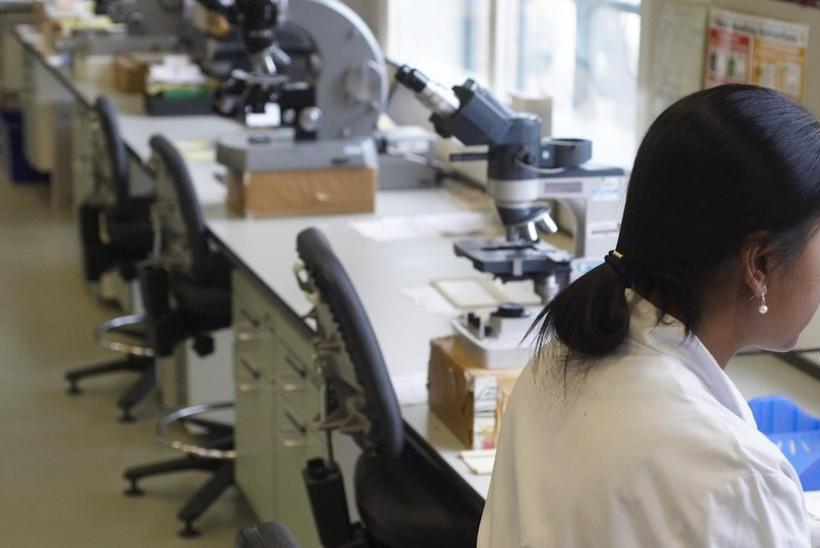对于严重型COVID-19新冠肺炎生物机制的最新研究发现
- Researchers have discovered new insights into the biological mechanisms behind the severe form of COVID-19.
- These new findings were discovered in a recent study, which looked at the genetics of severe COVID-19.
- This is the world's largest study on the subject to date, involving over 57,000 people, including many of our GOSH patients.
What has this research revealed?
- Researchers identified 16 new genetic variants associated with severe Covid-19
- This included some genetic variants related to blood clotting, immune response and intensity of inflammation.
These findings will act as a roadmap for future efforts, opening new fields of research focused on potential new therapies and diagnostics with pinpoint accuracy, experts say.
What did this research entail?
- Researchers sequenced the genomes of 7,491 patients from 224 intensive care units in the UK, including GOSH.
- Their DNA was compared with:
- 48,400 other people who had not had Covid-19
- participants in Genomics England's 100,000 Genomes Project
- a further 1,630 people who had experienced mild Covid-19.
- By understanding the whole genome sequence for all participants in the study, the team were able to create a precise map and identify genetic variation linked to severity of Covid-19.
- The team found key differences in 16 genes in the patients with severe Covid-19, when compared with the DNA of the other groups.
- They also confirmed the involvement of seven other genetic variations already associated with severe Covid-19, which were discovered in earlier studies from the same team.
The study was conducted with the support of researchers from the GenOMICC consortium. The GenOMICC consortium is a global collaboration to study genetics in critical illness and involves teams in the Intensive Care Unit (ICU) at GOSH. These researchers were led by University of Edinburgh in partnership with Genomics England.
Can one gene really make a difference?
- The findings included how a single gene variant that disrupts a key messenger molecule in immune system signalling – called interferon alpha-10 – was enough to increase a patient’s risk of severe disease.
- This highlights the gene’s key role in the immune system and suggests that treating patients with interferon – proteins released by immune cells to defend against viruses – may help manage disease in the early stages.
- The study also found that variations in genes that control the levels of a central component of blood clotting – known as Factor 8 – were associated with critical illness in Covid-19.
- This may explain some of the clotting abnormalities that are seen in severe cases of Covid-19. Factor 8 is the gene underlying the most common type of haemophilia.
- This study was in adults and children and, while children made up a much smaller proportion of those studied (severe response to SARS-CoV-2 in children is much rarer than for adults, and includes a new syndrome called PIMS-TS), their inclusion meant that the study was able to examine how age affected the disease severity, a crucial part of the study
"This projects is an incredible example of what can be achieved by the NHS research community through collaboration on this scale, at speed," explains Dr Jenny Rivers, Deputy Director of Research and Innovation.
"Early findings from this study have already helped the RECOVERY study (a collaboration between multiple UK research organisations and hospitals, including GOSH) pick interventions that target Covid-19 based on a patient's genetics. Building on prior studies and working with others so quickly and closely as part of a bigger initiative, highlights the power of Research Hospitals, like GOSH, to deliver patient benefit in such a short timescale."
We can use research in the intensive care setting at GOSH to reach far beyond rare diseases and improve and inform best practice for more widespread conditions and treatments, for both children and adults. While severe illness in children after infection with SARS-CoV-2 (PIMS-TS) is rare, it's important we understand how this disease behaves in children and adults and we are rightly proud of the teams who worked to hard to contribute to this national effort.
Professor Mark Peters, GOSH Consultant Paediatric Intensivist
Learn more about the study
GenOMICC (Genetics of Susceptibility and Mortality in Critical Care) started in 2015 as an open, global consortium of intensive care clinicians dedicated to understanding genetic factors influencing outcomes in intensive care from diseases such as SARS, flu and sepsis. The consortium is led by the University of Edinburgh, and since 2020 it has been focused on Covid-19 research.
GenOMICC is funded by DHSC, LifeArc, the charity Sepsis Research FEAT, the Intensive Care Society, Wellcome, UK Research and Innovation, Scotland’s Chief Scientist Office, the Department of Health and Social Care and the National Institute for Health Research (NIHR), and supported by Illumina, and all research at GOSH is underpinned by the NIHR GOSH BRC.
The findings have been published in Nature.


